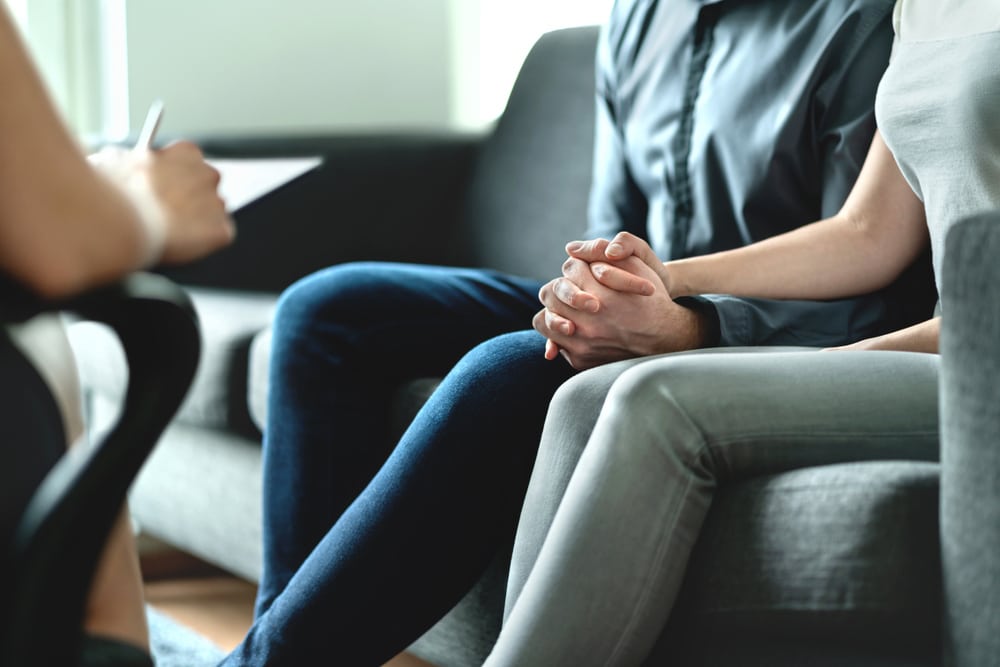Starting relationship counselling can feel like stepping into the unknown. Whether you’re navigating ongoing tension, recovering from a specific event, or just trying to reconnect, taking that first step into therapy is often accompanied by uncertainty. What will it be like? Will you be asked uncomfortable questions? Is it about fixing someone or finding fault? The truth is much gentler—and far more constructive.
Relationship counselling offers a space where both individuals are supported to share, reflect and reconnect in a neutral environment. The first session sets the foundation for this journey, offering clarity, structure and safety. If you’re considering counselling or have booked your initial appointment, here’s what happens in relationship counselling.
Meeting Your Counsellor: Creating a Safe, Non-Judgmental Space
When you first walk into the counselling room—either in person or virtually—you’ll experience a calm and neutral setting. The counsellor’s primary aim during this session is to establish a safe and respectful space for both partners. This atmosphere helps each person speak freely and honestly without fear of criticism or blame.
Your counsellor will also outline how sessions will work, their role, and the boundaries and confidentiality policies.
What this stage might include:
- An overview of confidentiality and the limits of privacy
- Discussing how sessions are structured and what to expect
- Reassuring both partners that the space is non-judgmental and unbiased
Sharing Your Relationship Story Without Pressure
One of the most common fears before counselling is being put on the spot or judged. In reality, the first session is exploratory. The counsellor may ask you to share your relationship history or current concerns, but there is no expectation to cover everything or find solutions immediately.
Each person may be invited to speak about their perspective—how the relationship currently feels, what’s working, and where they’re struggling. Importantly, there’s no ‘right’ answer.
You might be invited to explore:
- What brought you to counselling at this time
- Significant events in the relationship (positive or negative)
- How you each feel about communication, closeness, and conflict
Understanding the Role of the Counsellor in Mediation & Guidance
Contrary to what some might expect, a relationship counsellor is not a referee. Their role isn’t to declare one person right or wrong but to support both individuals equally. They act as a guide, helping you unpack what’s happening beneath the surface and understand your relational dynamics.
Rather than giving advice or quick fixes, they aim to help you both become more aware of how you relate to one another.
The counsellor’s support may involve:
- Facilitating clear, respectful dialogue
- Helping uncover patterns that influence communication
- Reflecting observations to increase mutual understanding
Exploring Common Challenges & Communication Patterns
Most couples present with a combination of external stressors and internal disconnection. In the first session, the counsellor may identify any repeated patterns—such as defensiveness, withdrawal, or escalating conflict—that could affect your connection.
This isn’t about blame, but insight. Recognising unhelpful cycles is an essential step toward change.
Typical themes that might emerge include:
- Feeling unheard or misunderstood
- Avoiding difficult conversations
- Differences in conflict resolution styles
- Emotional distance or unmet need
Setting Goals Together for Your Relationship Journey
Every relationship is unique, so your goals for counselling will reflect your circumstances. After hearing from both partners, the counsellor may assist in setting initial aims or intentions for the sessions to follow.
These goals can evolve over time. The important part is that they are collaboratively developed and relevant to both of you.
Goals might include:
- Improving how you communicate during disagreements
- Rebuilding emotional or physical intimacy
- Learning to listen with empathy and understanding
- Creating shared strategies for navigating future stress
Managing Expectations & Respecting Individual Pacing
Each person comes to counselling with a different level of readiness, and that’s okay. The first session often highlights how comfortable or cautious each partner feels about opening up. Your counsellor will be mindful of this and avoid pushing for disclosures before you’re ready.
Progress in counselling isn’t always linear, and early sessions are often about establishing emotional safety rather than diving into big issues.
Your counsellor will help by:
- Creating space for both partners to express themselves at their own pace
- Checking in regularly to help each person feel comfortable
- Supporting clarity without rushing emotional processing
Initial Exercises to Promote Listening & Empathy
You may be introduced to simple frameworks to help foster understanding and reduce defensiveness. These are not tests or evaluations, but tools to help shift the focus from problem-solving to connection.
While not every first session involves structured exercises, many counsellors use gentle techniques to explore how each person gives and receives communication.
These might include:
- Reflective listening: repeating back what was heard to build empathy
- “I” statements: learning to express feelings without blame
- Emotion-focused check-ins: helping identify and name emotions beneath conflict
Next Steps: What Happens After the First Session
Towards the end of your session, the counsellor will often recap what’s been discussed and outline options for ongoing support. If it feels appropriate, they may suggest a course of weekly or fortnightly sessions, depending on your goals.
Some couples are also introduced to structured support programs such as “Reignite the Spark”, which provide a guided way to rebuild emotional and physical connection outside regular sessions.
Your next steps may involve:
- Booking regular follow-up sessions
- Reflecting on what felt helpful or difficult in the session
- Deciding whether to engage in additional support resources
Learn More About Relationship Counselling in Logan
At StartPoint Counselling, we understand that taking the first step into relationship counselling can feel overwhelming. That’s why we focus on creating a compassionate, respectful space where both individuals feel supported and heard.
Whether you’re exploring how relationship counselling works or are ready to book your first session, our team is here to help. We also offer the Reignite the Spark program for couples looking to deepen their connection beyond traditional sessions. Get in touch via our contact page to schedule your first appointment or to learn more about our services. We’re ready to support you.






